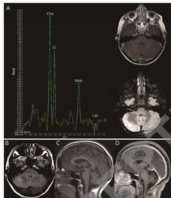Clinical features, prognostic, and antibody...
Metabotropic glutamate receptors (mGluRs) are G-protein coupled glutamate receptors that mediate excitatory neurotransmission in the central and peripheral nervous system. They are involved in a variety of functions, such as memory, learning, anxiety and pain perception.
The aim of this study is to characterize the long-term outcome of patients with anti-mGluR1 encephalitis and to identify predictive factors of response to immunotherapy. Moreover, similar to what has been reported for mGluR5 autoantibodies, there is evidence that mGluR1 antibodies may be pathogenic, as they have been shown to alter Purkinje cells function in cerebellar slices and cause motor incoordination when injected in the cisterna magna of mice. However, the mechanisms by which these antibodies alter neuronal function are unknown. Therefore, here we also explored whether patients’ antibodies alter the surface density of mGluR1 in cultured neurons.




